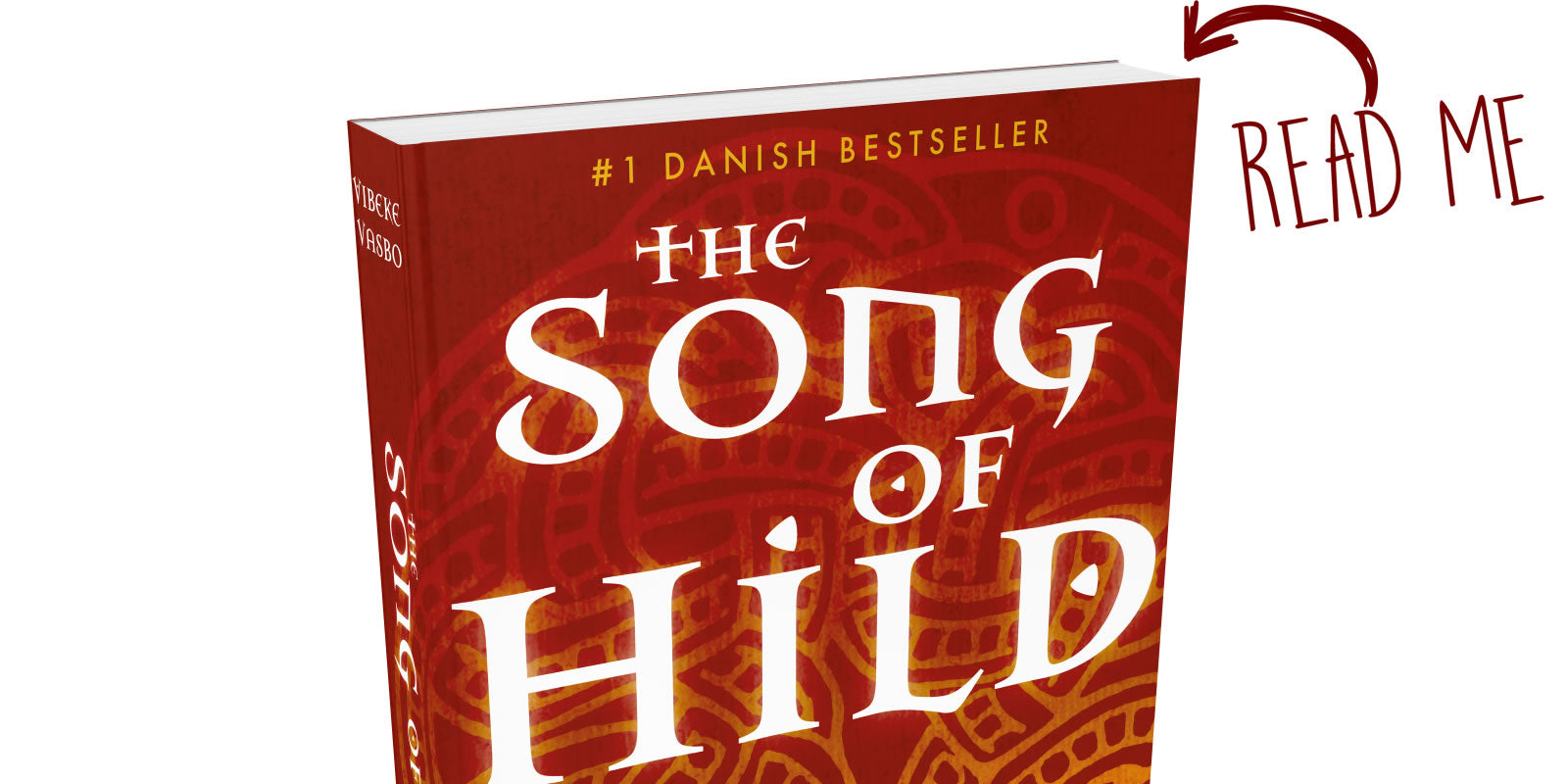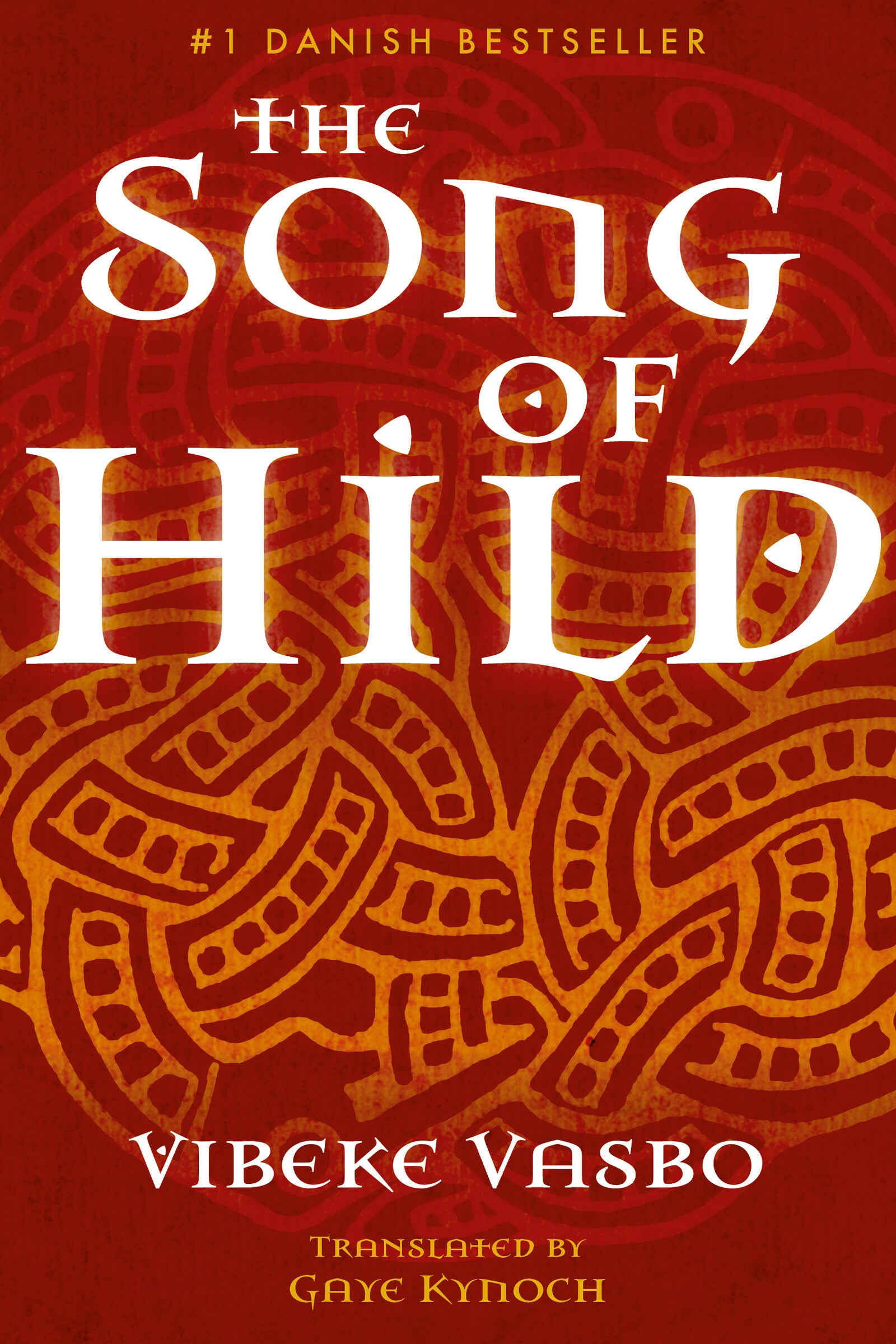 Excitement is building for the release of #1 Danish bestseller The Song of Hild. Can't wait to start reading it? Here are the first few pages to whet your appetite...
Excitement is building for the release of #1 Danish bestseller The Song of Hild. Can't wait to start reading it? Here are the first few pages to whet your appetite...
Had you been able to look down through the thick woodland covering the uplands north of the Vale of Pickering, and seen into the light alder thicket alongside Hodge Beck, at the spot where it crosses the track between Pickering and Helmsley, then at about ten o’clock on the morning of October the thirteenth in the year 633 you might have seen a party of horsemen drawing to a halt.
It was obvious they had set out in great haste and urgency; there were no carts, just untidy collections of cloth bundles lashed to the saddles. A few heavily-laden packhorses were managing to keep up with the riding mounts.
The sweating, hard-ridden beasts were watered in the beck at the ford; the riders quenched their thirsts and cooled their faces and hands.
Rain fell silently and persistently. Some of the fugitives took refuge in the thicket to answer the call of nature. One of them was a finely-dressed young woman; the many thick layers of clothing couldn’t hide the fact that she was heavily pregnant. Having relieved herself, she straightened up quickly—so quickly that everything went dark before her eyes. She tried to grab hold of a tree, but her huge belly got in the way; she slipped in the clayey soil and fell.
By the time she regained consciousness and crawled out of the wet and sticky mire, it was afternoon. Her head was throbbing, but she knew they had to press on immediately; she hurried back to the ford.
She could only see a few of her retinue; they were lying on the ground, but they weren’t just taking a nap. First she saw her wetnurse, then her handmaid and young half-cousin; all with their skirts pushed up and their sex laid bare. The young cousin’s crotch was a mass of blood, and her fair, almost white hair, which she had worn in a thick plait on the left side of her head, had been hacked off—some of her scalp had been sliced away with it.
A moorhen flapped up and the young woman gave a start. The beck babbled along its course, flowing over the legs of the wetnurse. A chaffinch warbled loudly and relentlessly from an overhanging branch. The stillness between these two prattling wellsprings of sound was overwhelming, and it took quite a time before she dared break it by putting one foot in front of the other and moving away.
She found the men just a short distance from the beck. Her swordbearer with a gaping wound where there should have been a head, his right arm almost severed; not just killed but, like the women, slashed all over. The cupbearer close by, crouching, his back hacked to pieces; she couldn’t see his front. The steward and the young groom were missing, also a handmaid and two kitchen maids.
Apart from the slaves, these were the people who had been left behind on the estate: women, the slenderest boys and the men who were either too old or in some way too feeble to be of any use on the battlefield. Their job had been to protect the settlement. All the horses had gone. She wasn’t used to walking.
Having seen what there was to see, she retraced her steps, away from the road.
And then she had her first contraction. She instinctively moved away from the dead, walked uphill alongside the beck. When the spasms struck, she had to get down on her knees or on all fours. The rain intensified.
She was lying on her side during a contraction when she spotted an opening higher up the slope. She moved slowly—it looked like the entrance to a cave. She crawled in, and there she lay when her waters broke. She had no idea what was oozing out of her, she just brushed it away with her hand, out to all the other wetness. She stayed there throughout the evening and night, shifting around in the narrow space as the contractions quickened.
The blackbird had just started to sing when she gave birth to her first child. As the sky grew light, the second one arrived. She dealt with the umbilical cord as she had seen the dogs do at home. Both babies screamed. She wrapped one of her underskirts around each of them and put them to her breasts. Something else forced its way out: a large brownish-blue clot, looking like a sheep’s liver. It wasn’t a baby—not any longer, at least—and she shoved the clot into the corner of the cave.
‘Your father is a coward,’ she said to the child on the left.
They were both boys. To the one on the right, she said: ‘Your father is a king’s son and he lives.’
And then she had to laugh. Paulinus had so often said, half in jest when the men’s boasting about their feats became too much for him: ‘Better to be a live dog than a dead lion.’
‘Hundfrid,’ she said to the child on the left, his name suddenly apparent. ‘Your father is a yellow hound. But he is better off than the king.’
She looked down at the still nameless child on the right. ‘Your father is better off than his older brother. Wilbrord!’
Welcome, Hundfrid and Wilbrord.
An imposing, richly detailed and historically vigilant tale, told by one of the most compelling Danish voices in storytelling and gender history. Vibeke Vasbo leads the reader sure-footedly into a world that is recognizable in all its beauty and cruelty, and yet so very alien.
Dorthe Nors, shortlisted for the Man Booker International Prize 2017
She had laid the tightly-wrapped babies close together and gone down to the beck. Everything inside her was sore and painful and she walked awkwardly. But there was also an almost floating ease to her body, now relieved of its burden. She gulped water, washed her face and rubbed the blood and slime from her legs and crotch.
She was walking downhill towards the ford when a flock of noisy ravens screamed up into the air. The sound of hoofbeats, distinct hoofbeats; she gathered her skirts and ran back to the cave. The babies were lying quite still; she didn’t touch them, but bared her breasts for them to drink and held a large corner of her top skirt ready—to smother them if her breasts weren’t enough to keep them quiet.
It felt like an age before the horses came to a standstill at the ford. Even the hungriest raven had to abandon its feast, with rasping protests. Perhaps there were twenty horses, perhaps thirty. Through the rain, she heard the sound of male voices and shouting and the clanking of metal against metal, horses whinnying and slurping. Branches were bent over and flicked back, twigs snapped under men’s heavy footsteps; one was on his way up along the beck—he stopped.
She saw him from the side; he was staring at the ground, a man about the same age as her husband, the coward. Twenty-two years old or less, short and stocky, hair shining like fire under a shabby leather riding-cap. He was spattered with wet mud, but also with something else, stiff, not fresh: brownish specks up his sleeves and large rust-coloured blotches on his tunic. The kind of stains that have to be soaked in cold water for a long time before they work loose. An axe in his belt, decorated with what looked like spiral patterns the natives used. Maybe a young wife at home.
He turned in her direction, his gaze tracking her footprints across the sodden earth. They weren’t hard to follow. She could even see them herself. He cleared his nostrils and began to walk slowly towards the entrance to the cave—as if his mind was on something else. She didn’t move; there was only the one way out.
The Song of Hild is a gritty, powerful story about the prominent role women played in the spread of Christianity in seventh-century Britain. In Gaye Kynoch’s exquisite translation of the Danish bestselling novel Hildas sang by Vibeke Vasbo, we are drawn into a world of dark dealings, powerful patriarchy and religious wrangling.
Pre-order your copy of this “bestseller of great literary quality” today for just £11.99 (out 15 July 2018).










